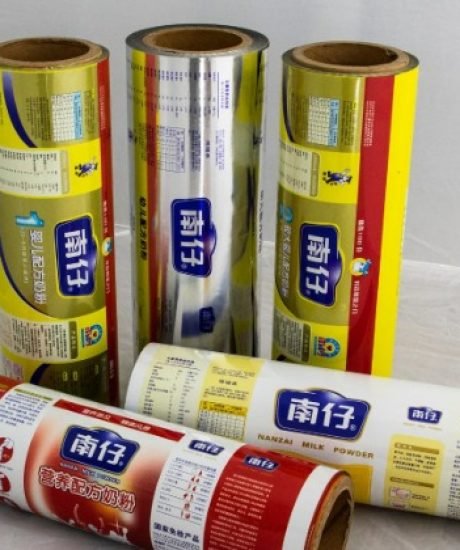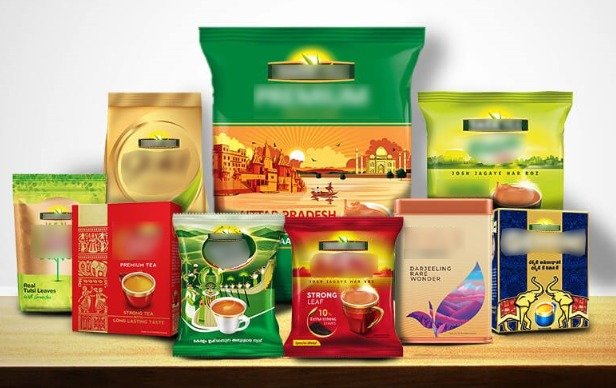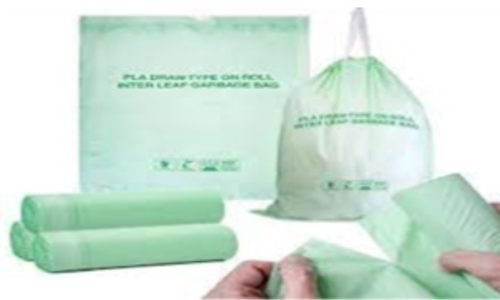EPR-Plastic Waste Authorization for RECYCLING
India’s EPR for Plastic Waste (2016): Shifting Responsibility, Shaping a Sustainable Future
MoEF&CC notified Amendment to PWM Rules on February 16, 2022 as per
which the Producers, Importers, Brand-owners (PIBOs) shall carry out Extended Producer Responsibility for management of plastic waste as per Guidelines given in Schedule II of PWM Rules. As per Clause 11.1 of the Guidelines, Plastic Waste Processors (PWPs) namely the recyclers, waste to energy plants including co-processing cement plants, plastic waste to oil units, and industrial composting facilities shall have to register with concerned SPCBs/PCCs in accordance with provision 13(3) of PWM Rules, 2016 on the centralized EPR portal developed by CPCB. Further, CPCB shall lay down uniform procedure for PWP registration within three months of the publication of these guidelines.
Free Consultation By Experts
Introduction
India faces a significant challenge in managing plastic waste. To address this, the government introduced the Plastic Waste Management Rules, 2016 (PWM Rules), which incorporate the Extended Producer Responsibility (EPR) principle. Here’s a detailed breakdown of EPR for plastic waste management in India:
The Plastic Waste Management (PWM) Rules, introduced by the Indian government in 2016, aim to create a responsible and sustainable plastic waste management ecosystem. As a recycling plant, these rules present both opportunities and considerations for your operations. Here’s an introduction to the key aspects of the PWM Rules relevant to your business:
Focus on Extended Producer Responsibility (EPR):
- The EPR framework shifts the responsibility for managing plastic waste to Producers, Importers, and Brand Owners (PIBOs).
- This means PIBOs might collaborate with recycling plants like yours to fulfill their obligations of collecting and recycling plastic packaging waste.
Benefits for Recycling Plants:
- Increased Demand for Recycling Services: EPR incentivizes PIBOs to utilize recycling solutions, potentially leading to a rise in the volume of plastic waste processed by your plant.
- Standardized Waste Streams: The PWM Rules might establish regulations for sorting and categorizing plastic waste, ensuring a more consistent stream of recyclable materials entering your facility.
Compliance Considerations:
- Registration Requirements: The CPCB (Central Pollution Control Board) might mandate registration for recycling plants, outlining specific criteria for operation and environmental safeguards.
- Waste Acceptance Procedures: The rules might establish guidelines for accepting plastic waste, potentially requiring adherence to specific sorting and categorization protocols.
- Environmentally Sound Practices: The PWM Rules emphasize environmentally responsible recycling processes. You’ll need to ensure your plant adheres to regulations regarding emissions, water usage, and waste disposal.
Staying Informed:
- Consult with Experts: Environmental lawyers or waste management consultants can provide valuable insights into ensuring your plant operates in full compliance with the PWM Rules.
Conclusion:
The PWM Rules offer a framework for a more sustainable plastic waste management system in India. By understanding these regulations and proactively adapting your operations, your recycling plant can play a crucial role in achieving the goals of the PWM program: reducing plastic pollution, promoting resource conservation, and creating a circular economy for plastic.
Eligibility Criteria
Eligibility Criteria for Recycling Plants under India’s Plastic Waste Management Rules (PWM Rules
While the specific details are still under development by the Central Pollution Control Board (CPCB), here’s a breakdown of what recycling plants can expect regarding eligibility criteria for registration or operation under the PWM Rules:
Potential Requirements:
- Valid Business Licenses: You’ll likely need a valid business registration and potentially specific licenses for operating a recycling facility.
- Location and Infrastructure: The CPCB might establish regulations regarding the location and infrastructure of your plant. This could involve:
- Zoning compliance for industrial or waste processing areas.
- Minimum space requirements for sorting, storage, and processing activities.
- Environmental clearances for air and water emissions.
- Waste Management Capacity: Demonstrating sufficient capacity to handle the volume and types of plastic waste you intend to process could be a requirement.
- Technology and Equipment: Owning or having access to appropriate technology and equipment for efficient and environmentally sound plastic recycling is likely to be crucial.
- Environmental Safeguards: The CPCB might mandate specific measures to ensure your recycling process minimizes environmental impact. This could include:
- Wastewater treatment facilities.
- Air pollution control equipment.
- Proper waste disposal procedures for non-recyclable materials.
- Occupational Safety: Demonstrating adherence to occupational safety standards for workers in your recycling plant might be necessary.
Additional Considerations:
- Financial Stability: The CPCB might require evidence of financial stability to ensure your ability to operate the recycling plant sustainably and meet potential EPR obligations (explained below).
- EPR Collaboration: The PWM Rules establish Extended Producer Responsibility (EPR), where producers might collaborate with registered recycling plants. Your plant might need to demonstrate capability and willingness to partner with PIBOs (Producers, Importers, and Brand Owners) for EPR compliance.
Disclaimer:
This information is based on current understanding of the PWM Rules and might not be exhaustive. Refer to official CPCB pronouncements for the most accurate details regarding eligibility criteria for recycling plants.
Plastic Packaging Categories & Fees
The following plastic packaging categories are covered under EPR:
Category I : Rigid plastic packaging
Category II : Flexible plastic packaging of single layer or multilayer (more than one
layer with different types of plastic), plastic sheets or like and covers made of plastic
sheet, carry bags, plastic sachet or pouches
Category III : Multilayered plastic packaging (at least one layer of plastic and at least
one layer of material other than plastic)
Category IV : Plastic sheet or like used for packaging as well as carry bags made of
compostable plastics




The details of fees to be paid by PIBO/ PWP is as given below:
A. Application fees for Registration of PWP.
Sl. No | Production capacity Slab ( TPA ) | Proposed Processing Fees (Rs.) * |
1 | < 200 | 5000 |
2 | 200-2000 | 20000 |
3 | >2000 | 50000 |
B. Renewal fees : Same as Registration fees.
C. Annual Processing Fees: 25% of Application fees ( for PIBOs as well as PWP).
Documents Requirement for Registration
The main documents required to obtain EPR Authorisation for Plastic Waste Management Business are
Before setting a recycling plant you will be required some licenses:
- Company Incorporation
- GST Registration
- Authorization from SPCB
- Registration under PWM (Connect with team for full documentation)
Documents Required for Registration:
- GST Certificate
- Company Incorporation Certificate (for Pvt ltd / public ltd
- Authorized Signatory Aadhaar Card
- Authorized Signatory PAN Card
- Electricity Bill
- Layout Plan
- MOA (for Pvt ltd / public ltd)
- Topo map
- Water Bill
- Rent Agreement/ Property Paper
Documents required for Manufacturing of Plastic Raw Material:
- Aadhaar & PAN Card Authorized Signatory
- GST Certificate
- Valid CTE & CTO
- DIC or DCSSI Certificate
Registration Process In India
The registration process for recyclers under India’s Plastic Waste Management Rules (PWM Rules) is still under development by the Central Pollution Control Board (CPCB) 2024. However, based on general practices for environmental registrations and the existing framework, here’s a likely scenario for the registration process:
1. Stay Informed:
- Official Guidelines: Once released, carefully review the official guidelines or notifications issued by the CPCB detailing the registration process, eligibility criteria, and any associated fees.
2. Prepare Registration Documents:
- Gather Required Documents: Compile the documents likely needed, such as:
- Business Details (company registration documents, PAN card, GST registration)
- Facility Details (address, layout plan)
- Waste Management Capacity: Information on the types and volumes of plastic waste you can handle.
- Technology and Equipment: Details about the machinery and technology used for sorting, cleaning, and recycling plastic.
- Environmental Safeguards: Documents outlining your measures for air and water pollution control, waste disposal procedures, and occupational safety practices. (Permits or certifications might be required)
- Financial Stability: Documents demonstrating your financial capability to operate the recycling plant sustainably.
- Business Details (company registration documents, PAN card, GST registration)
3. Online Registration Portal:
- Access the Portal: Once the online registration portal becomes available on the CPCB website, use valid login credentials to access it. You might need to create an account if not already registered with the CPCB.
- Fill Out Application Form: Carefully complete the online application form, providing accurate information about your company, recycling facility details, waste processing capacity, and environmental safeguards implemented. Be sure to attach all the required documents in the designated format.
4. Verification and Approval:
- CPCB Scrutiny: The CPCB will scrutinize your application and uploaded documents to ensure completeness and compliance with the regulations. They might request clarifications or additional information if necessary.
- Site Inspection (Potential): Depending on the regulations, the CPCB or designated authorities might conduct a site visit to your recycling plant to verify the information provided and assess compliance with environmental and safety standards.
- Approval Notification: Upon successful verification and review, the CPCB will issue a formal notification of your registration approval.
Important Considerations:
- Timeline: Be mindful of any deadlines associated with the registration process. Early preparation will ensure you have ample time to gather documents and complete the application.
- Seek Professional Guidance: Consulting with environmental lawyers or waste management experts can streamline the registration process and ensure your application adheres to all requirements.
- Maintain Compliance: Maintaining compliance with the regulations and renewing your registration periodically will be crucial for continued operation as a registered recycling plant.
Disclaimer:
This information is based on current understanding of EPR for plastic waste management and might not be exhaustive. It’s crucial to rely on official CPCB announcements for the latest and most accurate details regarding the recycler registration process under the PWM Rules
Renewal of Registration
i. PIBO shall submit the application for renewal four months before the expiry of the Registration along with the necessary documents as discussed in the previous sections.
ii. PIBO have to ensure that Annual Reports are filed by June 30 of the following year (as per EPR Guidelines) for the intervening Registration period. Application for renewal will not be processed unless all due annual
reports are filed.
iii. Findings of Audit Reports shall be taken into consideration for renewal of PIBO Registration.
iv. Registration granted to PIBO shall be renewed for a period of three years by CPCB/SPCBs/PCCs within 15 days of receipt of complete documents from the Producers& Brand Owner.
Important Considerations:
- Timeline: Be mindful of any deadlines associated with the registration process. Early preparation will ensure you have ample time to gather documents and complete the application.
- Seek Professional Guidance: Consulting with (Himsyndicate)environmental lawyers or waste management experts can streamline the registration process and ensure your application adheres to all requirements.
- Stay Compliant: Maintaining compliance with the regulations and renewing your registration periodically will be crucial for continued operation as a registered PIBO under the EPR program.
Talk To Expert Advisor
STEP - 1
Fill The Application Form
STEP - 2
Get Free Consultation By Experts
STEP - 3
Make Payment & Place the Order
STEP - 4
Executive will process the Application & Get your work done with in the given Timeframe
